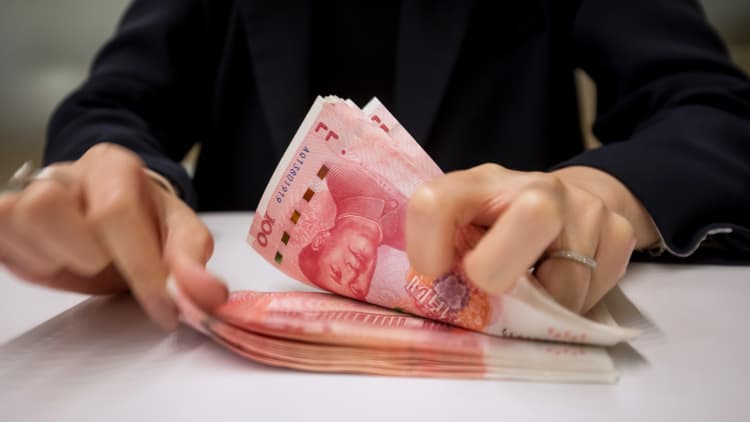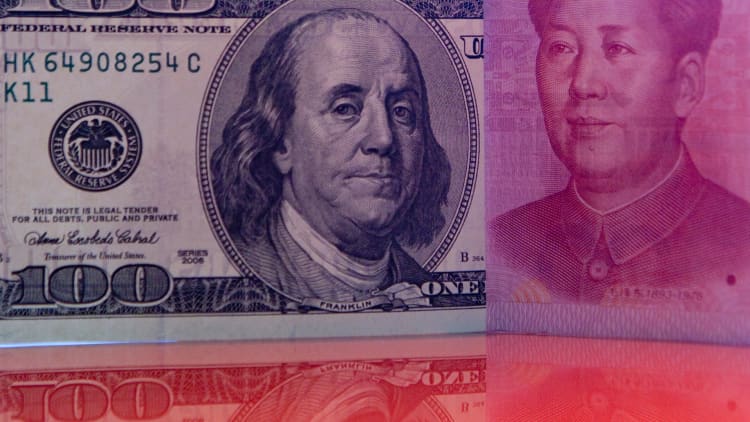
China's central bank has firmly rejected the U.S. Treasury's designation of Beijing as a currency manipulator, saying the accusation has "seriously" undermined the international financial order and risked further market turmoil.
The response from the People's Bank of China comes at a time of rapidly intensifying trade tensions between the world's two largest economies.
On Monday, the U.S. Treasury accused Beijing of deliberately influencing the exchange rate between the yuan and the U.S. dollar to gain an "unfair competitive advantage in international trade."
The move fulfills President Donald Trump's promise to recognize China as a currency manipulator for the first time since 1994.
The announcement followed a sharp drop in the yuan against the dollar, with the Chinese currency breaching the 7-per-dollar level for the first time since 2008. A drop in a currency's value makes that country's products cheaper on the international market.
"The United States disregards the facts and unreasonably affixes China with the label of 'currency manipulators,' which is a behavior that harms others and oneself," the PBOC said in a statement on Tuesday. "The Chinese side firmly opposes this."
The PBOC said it would not only "seriously undermine the international financial order, but also trigger financial market turmoil. It will also greatly hinder international trade and the global economic recovery, and ultimately will suffer from it."
China's central bank set the yuan's official reference point at stronger than the key 7 yuan-to-the-dollar point on Tuesday.
The move appeared to calm financial markets, initially rocked by fears the U.S.-China trade war was devolving into a currency war.
Late last week, China promised to fight back after Trump vowed to impose 10% tariffs on the remaining $300 billion worth of Chinese imports that had not been hit with U.S. duties.
Unfair advantage
Even before the formal designation, Trump took to Twitter to voice his opinion, accusing Beijing of manipulating its currency and saying it would "greatly weaken China over time!"
The next step is for the U.S. to make its case to the International Monetary Fund, but it's not likely to lead to formal penalties.
The manipulator label is mostly symbolic and matters more as a slight to one of the United States' biggest creditors and an escalation in the trade war.
The Treasury Department's announcement hinged on a 1988 portion of federal law that permits the Treasury secretary to work with the IMF to "eliminate the unfair advantage" associated with currency manipulation.
'Return to the correct track of rationality'
"This unilateral act of the United States also undermines the global multilateral consensus on exchange rate issues and has a serious negative impact on the stable operation of the international monetary system," the PBOC said
"The Chinese side advises the U.S. to leap over the cliffs and return to the correct track of rationality."

Since the trade war started last year, Washington has imposed 25% tariffs on $250 billion worth of U.S. imports from China. Beijing retaliated by slapping elevated levies on billions of dollars of American products that it buys.
In recent months, however, tensions between the two countries have extended beyond trade and into areas such as technology and security. In particular, the U.S. placed Huawei on a blacklist, making it more difficult for the Chinese tech giant to do business with American companies.
— CNBC's Thomas Franck and Yen Nee Lee contributed to this report.


